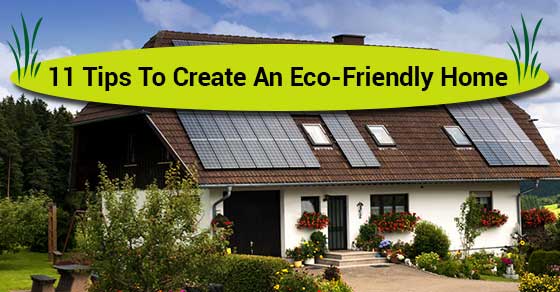Although sorting through recyclables is an environmentally friendly task, there are many more things homeowners can do to become eco-friendly.
Here are some tips that will make doing your part environmentally at home a little easier:
- When they’re not in use, turn the lights offThis is a small thing many of us forget to do, but it helps the environment and will save you money as well.
- Unplug unused electronicsThings like computers, TVs, stereos and kitchen appliances like toasters use almost as much energy just sitting there as when they’re in use. Unplugging them is a solution.
- The sun is your best friendThe most cost-efficient and environmentally beneficial light and heat source is the sun. Whenever you can, open window coverings to let in all that warmth and natural light!
- For cleaner air, ask smokers to go outsideSmoking inside is the number one cause of indoor air pollution. It does not make for a healthy living space.
- Non-toxic cleaning agents are the way to goNo one needs to use harsh, chemical cleaners anymore. There are many biodegradable products on the market or you can make your own using safe ingredients like baking soda, vinegar, borax and essential oils.
- Kitchen scraps are compostableFood byproducts like eggshells, fruit and veggie peelings, coffee grounds, and mostly all organic matter, can be composted in a bin or a pile. If you mix the compost with soil, you’ll have a nutrient-rich treat for your garden.
- Leave the clippings after you mowThe best thing you can do for your lawn is to leave the grass clippings after mowing the lawn. As they break down, they naturally fertilize the soil.
- There’s a better time to waterWhen watering your garden or lawn, try to do so early in the morning or early in the evening. Cooler temperatures help water to evaporate more slowly. Also, consider using greywater in your garden – water that has already been used in tubs, sinks, etc.
- Buy recycled goodsRead labels and purchase recycled things like toilet paper and cereals that use recycled cardboard.
- Fill it up firstWait until you have a full load before you run the washer or dishwasher. One cycle uses more than 25 gallons of water!
- Use compact fluorescent lightbulbsThey use only about a quarter of the energy regular bulbs do and last about 10 times longer.
If each household did some of these small things, the earth would benefit tremendously.




